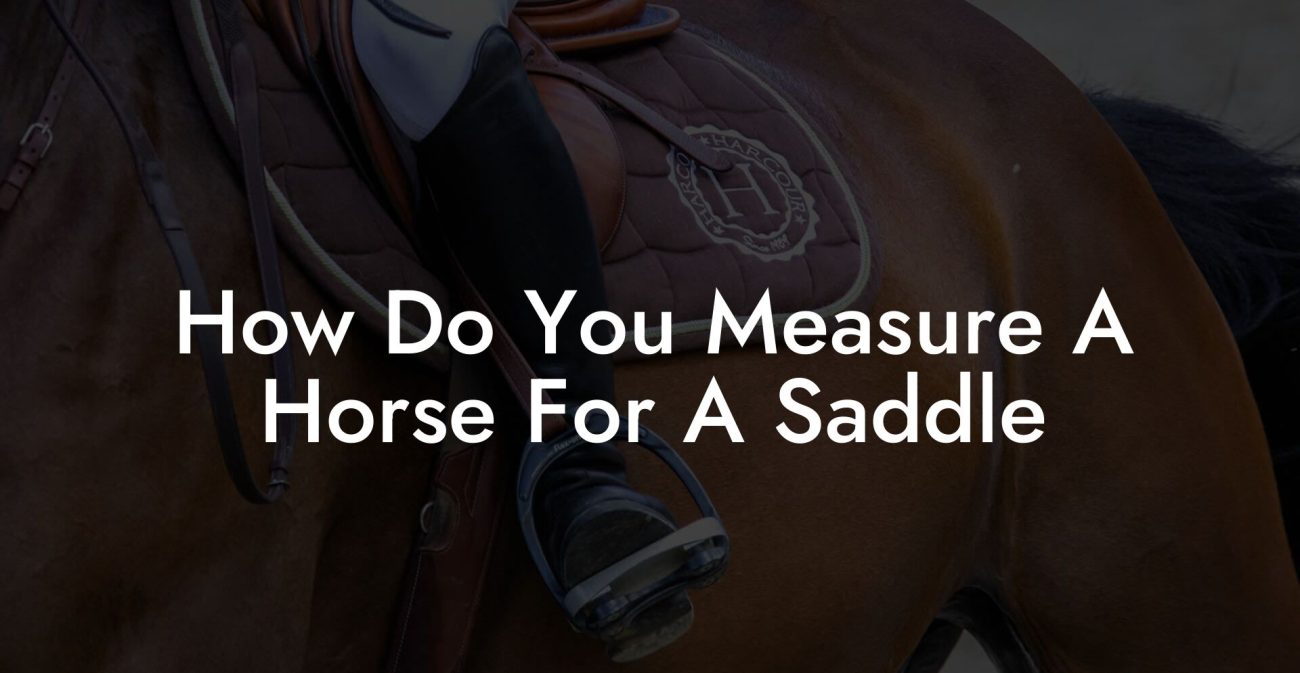Ever wondered if your four-legged friend is packing on too many pounds or if they’re just flourishing in that picturesque pasture? When it comes to horse care, understanding the weight of your equine companion isn’t just about numbers on a scale, it’s a gateway to ensuring optimal health, performance, and happiness. Dive into the fascinating world of equine weight management, where science meets art, and discover why knowing "What Is The Weight Of A Horse" is a must-know for every passionate rider, owner, and Gen-Z equestrian enthusiast.
Quick Links to Useful Sections
- Decoding Horse Weight: Beyond the Numbers
- The Many Faces of Equine Weight: Breeds, Ages, and Lifestyles
- Weighing in on the Science: How to Measure a Horse’s Weight
- Weight Tapes: The Old Faithful
- Equine Scales: Precision in Every Pound
- Girth Measurement Formulas: A Handy Alternative
- Factors Affecting the Weight of a Horse: Nature vs. Nurture
- Genetics: The Blueprint of Your Horse
- nutrition: Fueling the Equine Engine
- Exercise & Activity: Keeping the Body in Motion
- Environment: Pastures, Stables, and Everything In Between
- Why Weight Management is Essential for Equine Health
- Medication Dosages and Treatments
- Nutritional Planning
- Performance and Workload Optimization
- Prevention of Metabolic and Orthopedic Issues
- Tips and Tricks for Keeping Your Horse Healthy and in Check
- Establish a Routine Health Check
- Create a Balanced Diet Plan
- Incorporate Variety in Exercise
- Monitor Behavior and Health Signs
- Equine Nutrition: Crafting the Perfect Diet for Your Horse
- Forage: The Foundation of Equine Diets
- Concentrates and Grains: Strategic Energy Sources
- Supplements and Vitamins: Filling the Gaps
- Recognizing the Signs: When Your Horse is Over or Underweight
- Overweight Warning Signs
- Underweight Indicators
- Resources and Community Support: Your Next Steps in Equine Weight Management
- Join Equine Forums and Social Media Groups
- Consult Local Veterinarians and Equine Nutritionists
- Attend Workshops and Equestrian Events
- Utilize Online Resources and Educational Platforms
- Future Trends in Equine Weight Management and Care
- Your Journey to a Healthier, Happier Horse
- Equine Health and Weight Management: A Holistic Approach
- FAQs: Getting Answers on Horse Weight and Care
- Embrace the Journey: A Future of Healthier, Happier Horses
Decoding Horse Weight: Beyond the Numbers
A horse’s weight is more than a mere statistic; it’s an essential indicator of overall health, sporting potential, and nutritional balance. Unlike human weight, which often comes with a host of social preconceptions, a horse’s weight tells a richer story about its age, breed, workload, genetics, and even its environment. Whether you’re a milennial riding in an urban equestrian park or a Gen-Z enthusiast proud of your Instagram-worthy stable, knowing how much your horse weighs helps you tailor the perfect care regimen.
In the equine world, weight is typically measured in pounds or kilograms. However, the story doesn’t end there. The weight of a horse plays a crucial role in determining farriery requirements (think shoeing), medication dosages, feed portions, and exercise plans. Too little weight might signal malnutrition or an underlying health concern, while too much could lead to conditions like laminitis, joint stress, and a decrease in overall performance on the track or in the arena.
As you journey through the ins and outs of equine health, you’ll discover that understanding horse weight is a multifaceted endeavor. It involves a blend of traditional methods, modern technology, and a healthy dose of plain common sense. Ready to explore the dynamic relationship between a horse’s weight and its well-being? Let’s saddle up and get started!
The Many Faces of Equine Weight: Breeds, Ages, and Lifestyles
Horses come in all shapes, sizes, and temperaments, and their weight can vary dramatically depending on a host of factors. From the lean, muscular Thoroughbreds galloping across race tracks to the gentle giants of the draft breeds that plow the fields, every horse has its own unique weight profile. So, what exactly influences the weight range of a horse?
First off, breed plays a starring role. For instance, a full-grown Arabian might weigh between 800 to 1,000 pounds, whereas a sturdy Clydesdale can tip the scales at anywhere from 1,800 to over 2,500 pounds. Even within a single breed, individual variations exist. Some horses are naturally stockier due to genetics, while others are leaner and more athletic. Think of it as the difference between a marathon runner and a powerlifter, both are incredible, but they have different builds and weight distributions.
Age is another major factor. Foals, for example, are a study in rapid growth and development. A newborn foal may weigh a mere 90 to 120 pounds, but as it matures, its weight will progressively climb to reach its breed-specific adult range. Senior horses, on the other hand, might face weight fluctuations due to changes in metabolism, dental health, or reduced activity levels.
Lifestyle and workload further influence weight. A horse that spends its days in high-energy events like jumping, dressage, or racing will often maintain a leaner physique, optimized for performance and agility. Conversely, a leisure horse or one primarily used for light riding might accumulate a bit more body mass. This isn’t necessarily a bad thing, just a reminder that each horse has its own “ideal” weight based on its day-to-day activities.
Weighing in on the Science: How to Measure a Horse’s Weight
Now that we’ve laid the groundwork, let’s talk about the nitty-gritty of measuring equine weight. Gone are the days when you could simply guess and hope for the best, technological advancements have made monitoring your horse’s weight more accessible and precise.
Weight Tapes: The Old Faithful
Weight tapes remain one of the most popular and affordable tools in a horse owner’s arsenal. These tapes are designed to measure the circumference of a horse’s girth, and with a few simple calculations, you can estimate its weight. While not as accurate as a full-scale measurement, weight tapes provide a quick reference point that’s perfect for routine checks and adjustments in feeding.
Equine Scales: Precision in Every Pound
For more precise measurements, equine scales are the gold standard. Found at many veterinary clinics and training facilities, these scales can accurately determine a horse’s weight within a fraction of a pound. While they offer high precision, the downside is that not every stable has ready access to an equine scale. That said, scheduling periodic weigh-ins at your vet or a local equine center is a smart move to ensure optimal health monitoring.
Girth Measurement Formulas: A Handy Alternative
When scales and weight tapes aren’t available, many horse owners turn to girth measurement formulas. For instance, by measuring the heart girth and body length and plugging the numbers into a trusted formula, you can arrive at a fairly accurate estimate of your horse’s weight. This method is popular among riders and owners who are always on the go, balancing the convenience of a quick measurement with the need for accuracy.
Regardless of the method you choose, the key is consistency. Regular monitoring using the same technique will help you notice subtle changes over time, a critical component in preventing health issues before they become serious.
Factors Affecting the Weight of a Horse: Nature vs. Nurture
In equine care, weight can be as unpredictable as a rebellious colt on a windy day. Several factors can tip the scales, sometimes quite literally, in favor of added bulk or lean muscle.
Genetics: The Blueprint of Your Horse
Much like humans, a horse’s genetic makeup sets the stage for its body composition. Some breeds are naturally predisposed to heavier muscle mass and a robust frame, while others might be leaner and more agile. Understanding your horse’s genetic background is like knowing the cheat codes to its dietary and exercise needs.
nutrition: Fueling the Equine Engine
What your horse eats plays a huge role in determining its weight. A diet rich in high-quality forage, balanced grains, and essential vitamins is crucial for maintaining an optimal weight. Overfeeding or providing lower quality feed can lead to unwanted weight gain, while insufficient nutrition might leave your horse underweight and prone to health issues.
Exercise & Activity: Keeping the Body in Motion
Regular exercise acts as a natural regulator for your horse’s weight. Horses that participate in competitive sports or enjoy plenty of pasture time tend to burn more calories and develop a more streamlined physique. Conversely, horses with limited activity may accumulate extra pounds, highlighting the importance of a balanced and adequately structured exercise routine.
Environment: Pastures, Stables, and Everything In Between
The environment in which your horse lives can also make a big impact. Spacious pastures encourage natural movement, while closed-in stables might limit exercise if not managed correctly. Seasonal changes and the availability of fresh forage play their part in influencing weight fluctuations throughout the year.
Together, these factors, genetic predispositions, nutrition, exercise level, and the environment, paint a comprehensive picture of what determines your horse’s weight and how you can manage it effectively.
Why Weight Management is Essential for Equine Health
Knowing the weight of your horse is not just about maintaining a pretty number on a scale, it’s a pivotal aspect of equine health management with far-reaching implications. Let’s break down why monitoring and managing your horse’s weight is so important:
Medication Dosages and Treatments
Many medications and veterinary treatments require precise weight measurements to ensure the correct dosage. Whether your horse is receiving routine deworming treatments, pain management drugs, or other medical interventions, an accurate weight is essential to avoid under-dosing or overdosing.
Nutritional Planning
Feeding a horse isn’t a one-size-fits-all endeavor. An accurate weight measurement allows you to fine-tune your horse’s diet, tailoring feed amounts to match its energy needs. Overfeeding can lead to obesity, while underfeeding can cause nutritional deficiencies, both of which jeopardize overall health.
Performance and Workload Optimization
For horses involved in competitive disciplines or regular work routines, weight directly affects performance. A well-maintained weight helps maximize endurance, agility, and strength, ensuring the horse can meet the physical demands of its activities. Moreover, maintaining a proper weight reduces the risk of injury during strenuous exercise.
Prevention of Metabolic and Orthopedic Issues
Excess weight can place undue stress on a horse’s legs and joints, potentially leading to conditions such as arthritis, laminitis, and other orthopedic issues. Conversely, being underweight might weaken the immune system and lead to poor muscle development. Regularly checking your horse’s weight is a preventive step to catch potential problems before they spiral out of control.
In essence, equine weight management is a balancing act, a careful interplay that involves diet, exercise, and routine veterinary care. Understanding and monitoring your horse’s weight is instrumental in ensuring its longevity and overall quality of life.
Tips and Tricks for Keeping Your Horse Healthy and in Check
Managing your horse’s weight doesn’t need to be a daunting task reserved for veterinarians and professionals. With a little know-how and practical strategies, you can ensure that your equine friend remains healthy, active, and photo-ready for all those social media moments.
Establish a Routine Health Check
Regular weigh-ins, whether via weight tapes or at your local equine center, are the cornerstone of any successful weight management plan. Establish a consistent schedule so that you can track changes over time and make informed adjustments. Many horse owners use digital logs or apps to record these readings, which is especially handy when coordinating with your vet or nutritionist.
Create a Balanced Diet Plan
Work with an equine nutrition expert to develop a balanced diet that supports your horse’s energy needs while preventing undesirable weight gain. This might include a mix of high-quality hay, grains, and specially formulated supplements. Don’t forget to consider seasonal variations, the abundance of fresh pasture in spring and summer can greatly influence your horse’s nutritional profile.
Incorporate Variety in Exercise
Just like you wouldn’t want to eat the same meal every day, horses also benefit from a varied exercise regimen. Combine traditional riding, free-ranging in a spacious paddock, and structured training sessions to keep your horse’s muscles engaged and its metabolism active. Group activities, such as organized trail rides or equine sports events, provide not only exercise but also valuable social interaction.
Monitor Behavior and Health Signs
A horse’s behavior and physical condition can offer crucial clues about its overall well-being. Keep an eye out for signs of discomfort or unusual lethargy, changes in coat quality, or alterations in appetite. Early detection of any discrepancies can allow for swift adjustments in diet or exercise, ensuring that your horse never strays too far from its optimum health.
Staying proactive and engaging with a community of fellow horse enthusiasts online or locally can inspire creative solutions and tips for managing your horse’s weight, turning routine care into a fun and socially enriching experience.
Equine Nutrition: Crafting the Perfect Diet for Your Horse
Nutrition is the engine that drives performance and well-being, both for humans and horses alike. In the equine realm, a carefully balanced diet is essential to maintain the ideal weight, boost energy, and support overall health. Let’s break down some key nutritional components:
Forage: The Foundation of Equine Diets
High-quality hay and pasture grasses should form the backbone of your horse’s diet. Forage not only provides essential fiber but also aids in maintaining a healthy digestive system. Depending on your local climate and the season, ensure your horse gets a varied range of grasses to maximize nutrient intake.
Concentrates and Grains: Strategic Energy Sources
While forage is crucial, there are times when your horse may need a boost, especially before competitions or extended work sessions. Concentrates, such as oats or specially formulated grain mixes, provide an easily digestible source of energy. However, moderation is key; overfeeding concentrates can lead to rapid weight gain and metabolic issues, so always follow professional guidance.
Supplements and Vitamins: Filling the Gaps
Just like us, horses sometimes need a little extra help. Supplements and vitamins can make up for any nutritional deficiencies, ensuring that your horse’s coat, hooves, and muscles get the support they need. Omega-3 fatty acids, in particular, are prized for their anti-inflammatory properties, which can help maintain joint health and promote a sleek, shiny coat.
By aligning your horse’s diet with its daily energy needs and health requirements, you create a roadmap for a balanced, thriving life, one that’s bolstered by informed feeding practices and supported by modern nutritional research.
Recognizing the Signs: When Your Horse is Over or Underweight
Just as you monitor the scales on your phone after a big night out, it pays to keep an eye on your horse’s weight and body condition. Recognizing the signs of both excess and deficiency early on is vital in preventing long-term health issues.
Overweight Warning Signs
An overweight horse may display a range of subtle indicators: a dull coat, sluggish movement, or difficulty in performing athletic tasks. You might notice extra fat deposits along the neck, shoulders, and tail head, or a reduction in muscle tone. Overfeeding, lack of exercise, and poor nutritional balance can all contribute to these unwanted changes.
Underweight Indicators
On the flip side, a horse that’s too skinny might present with a visibly sunken appearance, prominent bones, and a general lack of energy. Poor dental health, inadequate nutrition, or parasitic infections could all be responsible for an underweight condition. Observing these warning signs early and seeking veterinary advice can prevent more serious health concerns.
Monitoring your horse’s body condition score (BCS) is a reliable way to gauge whether your horse is within its ideal weight range. Regular consultations with your veterinarian or equine nutritionist can help interpret these signs and fine-tune your horse’s care regimen.
Resources and Community Support: Your Next Steps in Equine Weight Management
When it comes to mastering horse care, you’re not alone in the arena. A vibrant network of experts, online communities, local equestrian clubs, and social media influencers are all ready to help you on your journey. Consider these strategies as you continue your quest for equine wellness:
Join Equine Forums and Social Media Groups
Engaging with fellow horse enthusiasts on platforms like Facebook groups, Reddit communities, and Instagram forums can be invaluable. Share experiences, swap tips on weight management, diet hacks, and exercise routines that have worked for others. In today’s digital age, learning from the collective wisdom of the equine community is both inspiring and practical.
Consult Local Veterinarians and Equine Nutritionists
In-person consultations can provide tailored advice and hands-on guidance far beyond what online articles offer. Local experts can assess your horse’s health, recommend the latest nutritional strategies, and even guide you on the use of high-tech weigh-in tools.
Attend Workshops and Equestrian Events
Many communities offer workshops ranging from basic horse nutrition to advanced weight management strategies. These events not only expand your knowledge but also give you the chance to see firsthand the latest tools and technologies available for equine care.
Utilize Online Resources and Educational Platforms
Websites dedicated to equine care, online courses, and webinars provide a treasure trove of information. Bookmark your favorite blogs and subscribe to newsletters so you're always in the know about the latest research and innovations in horse health.
Embracing these resources and connecting with a supportive community is a vital next step in ensuring your horse flourishes. Remember, every shared experience contributes to a larger tapestry of knowledge that benefits every horse lover out there.
Future Trends in Equine Weight Management and Care
As technology evolves, so does our ability to care for and understand our equine companions. The future of horse weight management is being shaped by innovations that integrate digital technology with traditional care practices.
Wearable technology, for instance, is making strides in the equine space, think of fitness trackers for horses that monitor heart rate, step count, and even calorie consumption. These smart devices provide real-time data, allowing you to adjust exercise routines and nutritional plans on the fly. For tech-savvy Gen-Z and millennial horse owners, this blend of technology and tradition is a game-changer.
Moreover, advances in veterinary diagnostics, such as 3D imaging and telemedicine, are enabling earlier detection of weight-related issues before they become critical. The integration of artificial intelligence in analyzing body condition trends will also empower veterinarians with predictive insights, ensuring timely interventions and more personalized care plans.
The road ahead is bright for equine care. With technology lending a helping hand and a thriving community of passionate horse people, the future of weight management is all about smarter, more efficient, and more compassionate care.
Your Journey to a Healthier, Happier Horse
Embracing the challenge of managing and understanding your horse’s weight is not just an act of routine care, it’s a deep commitment to your companion’s overall health and well-being. Each measurement, every tailored adjustment in diet, and all those minutes spent ensuring proper exercise contribute to a lifetime of vitality and strength.
Think of your horse as a living, breathing work of art that requires constant care, precision, and a dash of creativity to keep shining. Whether you’re adjusting feed portions, experimenting with new exercise routines, or simply taking the time to share a slow, thoughtful moment in the pasture, every effort counts. This journey is a testament to the bond you share with your equine friend, one built on trust, passion, and the continual pursuit of excellence.
As you continue exploring the nuances of equine weight management, remember that the path to a healthier, happier horse is a marathon, not a sprint. Celebrate small victories, learn from challenges, and always remain open to new innovations and techniques. After all, caring for a horse is as much about heart as it is about hoof.
So grab your weight tape, dust off that scale, and step into a world where every pound is a step toward a more balanced, exhilarating, and fulfilling equine lifestyle. Your horse, and your journey together, are poised for greatness.
Equine Health and Weight Management: A Holistic Approach
Beyond just counting pounds, true equine health is about nurturing the physical, mental, and emotional well-being of your horse. Holistic care integrates weight management with aspects like regular veterinary check-ups, grooming routines, mental stimulation, and social interactions with other horses.
A balanced approach to equine health involves crafting daily routines that emphasize not only nutrition and exercise, but also relaxation and mental engagement. Encourage your horse to explore varied environments, provide stimulating toys or activities in the stable, and never underestimate the power of a calm, engaging interaction. All of these components work in tandem with proper weight management to build resilience and a thriving, spirited presence that shines both on and off the arena.
When you commit to a holistic regimen, you’ll observe that managing weight becomes less of a chore and more of a natural part of an integrated care routine, where every meal, walk, and grooming session contributes to a cascade of positive health outcomes.
FAQs: Getting Answers on Horse Weight and Care
Here are some frequently asked questions to help clear up common concerns and curiosities related to horse weight management and overall equine care.
1. What Is the Typical Weight Range for Different Horse Breeds?
The weight of a horse can vary widely by breed. For example, lighter breeds like Arabians typically weigh between 800--1,000 pounds, while larger breeds such as Clydesdales can exceed 2,000 pounds. Keep in mind that individual differences and age play a role as well.
2. How Accurate Are Weight Tapes and Other Estimation Methods?
Weight tapes and girth measurement formulas provide a good estimate for routine check-ups. However, if you need precision, for medication dosing and health assessments, using an equine scale is recommended.
3. How Does Nutrition Impact a Horse’s Weight?
Nutrition is crucial. A diet rich in high-quality hay, balanced concentrates, and necessary supplements helps maintain an ideal weight. Overfeeding can lead to obesity while restricted diets might lead to underweight conditions, making it essential to consult with an equine nutritionist.
4. What Are the Key Signs of a Horse Being Overweight?
Look for signs like a dull coat, extra fat deposits along the neck and tail head, reduced muscle tone, and sluggishness during exercise. These can all indicate that a horse might be carrying excess weight.
5. When Should I Consult a Veterinarian About My Horse’s Weight?
Regular monitoring is essential. If you notice any sudden weight changes, unusual lethargy, or other signs of potential health issues, consulting your veterinarian promptly can prevent more serious concerns.
6. Can Technology Really Help in Monitoring My Horse’s Weight?
Absolutely. Digital tools, wearable devices, and smartphone apps now offer real-time insights into your horse’s activity levels and weight trends, making it easier than ever to maintain optimal health.
7. What Role Does Exercise Play in Weight Management?
Exercise is fundamental in burning excess calories and building muscle. A mix of structured riding, free-range pasture time, and periodic training sessions helps maintain a balanced weight and overall muscle tone.
8. How Often Should I Weigh My Horse?
Routine monitoring, such as monthly or seasonal weigh-ins, is advisable. This regular check helps you track progress and adjust dietary or exercise routines as needed.
Embrace the Journey: A Future of Healthier, Happier Horses
Managing the weight of your equine companion is a journey that meshes science, technology, and a whole lot of heart. With the right tools, a supportive community, and a proactive approach to care, you not only ensure that your horse stays at its optimum weight but also that it thrives in every aspect of its life.
From the synchronized rhythm of daily weigh-ins to the joy of watching your horse gallop with vitality, every step is a celebration of the remarkable bond between you and your equine friend. The journey may have its challenges, but armed with knowledge and passion, you’re well-equipped to handle every twist and turn.
So why wait? Delve into the science, explore innovative technologies, and connect with fellow horse lovers to create a care routine that is as unique as your horse. The future of equine care is here, and it’s dynamic, inclusive, and downright exciting.
Whether it’s tweaking your horse’s meal plan, joining a vibrant online community, or simply taking a moment to admire the beauty of a healthy, happy horse in motion, remember that each stride forward is a testament to your commitment to excellence in equine care. Your horse’s best days are ahead, and with every careful measurement and informed decision, you’re paving the way for a future filled with energy, grace, and boundless vitality.













